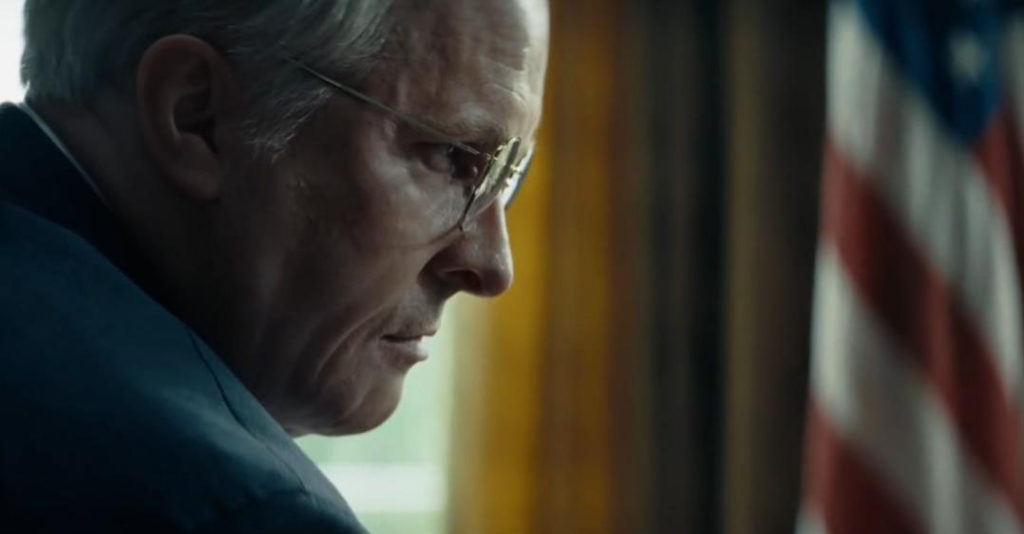“Vice” is a terrifying movie. A tremendously important, politically relevant, and absolutely terrifying movie about power and those who wield it. It is also one of the most entertaining and accessible political movies that I have seen, easily earning a place next to films like “All the President’s Men” and “The Big Short.”
“Vice” is a political biopic studying the life of Dick Cheney, the American Vice-President under George W. Bush and one of the people who has shaped our current world. Following Cheney from his misadventures as a drunken college drop-out all the way up until the peak of his power in the Iraq War, “Vice” makes for a fascinating character study and a disturbingly relevant political commentary.
One contributing factor to the film’s success is the all-star cast. The film features Christian Bale as Dick Cheney, Amy Adams as Lynne Cheney, Steve Carrell as Donald Rumsfield, and Sam Rockwell as George W. Bush. Each of them delivers solid performances, while also providing accurate portrayals of the people they are representing (Rockwell’s Bush is particularly delightful). With a combination of in-depth characterization and phenomenal make-up, Bale transforms into Cheney, silently conveying power and manipulation.
Director Adam McKay uses some extremely innovative story-telling devices throughout the film, using some to inject elements of satirical comedy while others give scenes emotional power. Stand-outs include a very funny end credits sequence that occurs mid-movie and a restaurant scene imagining Cheney trying out American policies like one would choose a fancy meal. However, though often effective, these devices aren’t always successful. A Shakespeare soliloquy from Macbeth misses the mark, taking away from the tone of the film and from the emotional gravitas. Additionally, the use of an external narrator acts as a bit of a crutch and is confusing from time to time.
Another filmmaking device repeatedly used by McKay is juxtaposition and visual symbolism. Cutting from a quiet political conversation to the bombing of a Cambodian village provides a powerful reminder of the true impact of political decisions. Later, during Cheney’s heart transplant, McKay cuts between a montage of Cheney’s political actions and his empty chest cavity, conveying a powerful visual metaphor. However, some of the symbolism may come across as a little heavy-handed, such as interspersing fishing scenes as Cheney manipulates and ‘reels in’ the people around him.
Overall, this is an important, well-executed film that succeeds as both an educational and entertainment piece. It provides a powerful analysis of many important topics, such as how media can be used to intentionally manipulate an issue in the public consciousness, the role of big business in government, and the way that personal interest drives many political decisions. These are all exceedingly relevant in our current political climate. Despite not being a horror movie, “Vice” is easily the scariest movie I watched all year.
-by Kieran Davey
